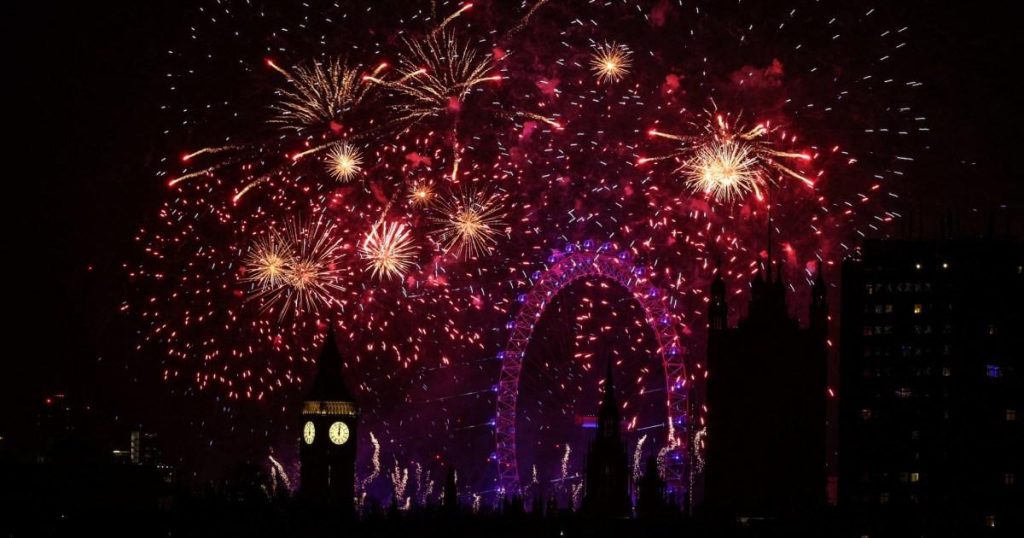The dawn of 2025 brought a mix of jubilation and disappointment for New Year’s Eve revelers across the globe. In Birmingham, England, thousands gathered in Centenary Square anticipating a spectacular fireworks display, fueled by viral AI-generated social media posts promising the city’s first official show in a decade. However, the promised spectacle failed to materialize, leaving many disheartened as the new year was ushered in with cheers and a single firework launched by an attendee. West Midlands Police officers were dispatched to inform the crowd of the hoax, yet a significant number chose to remain, undeterred, embracing the communal spirit of the occasion. This incident highlights the potential for misinformation spread through AI-generated content to impact real-world events, creating false expectations and potentially leading to public disappointment.
In stark contrast to Birmingham’s anticlimactic start to the new year, London hosted a dazzling fireworks extravaganza, touted as the largest in Europe. The vibrant display illuminated the iconic River Thames and the London Eye, accompanied by a synchronized musical score and the resounding chimes of Big Ben. However, celebrations at Primrose Hill were marred by a dangerous driving incident resulting in minor injuries to a pedestrian and the subsequent arrest of a man. This unfortunate event served as a reminder of the potential for unforeseen incidents to disrupt public gatherings, even amidst joyous celebrations.
Meanwhile, Manchester residents braved persistent rainfall to witness their city’s fireworks display, demonstrating a resilient spirit in the face of inclement weather. While many planned events proceeded as scheduled, several major displays, including Edinburgh’s renowned Hogmanay celebration, were forced to cancel due to adverse weather conditions. Blackpool, Newcastle, and Ripon also succumbed to the unfavorable forecast, canceling their planned festivities. These cancellations underscore the significant impact of weather on large-scale outdoor events, particularly during the winter months.
The Met Office issued warnings for rain, snow, and wind across much of the UK, anticipating “disruptive” and potentially hazardous conditions in the days following New Year’s Eve. Chief forecaster Andy Page emphasized the complexity of the weather patterns, highlighting the potential for warning escalations in certain areas. He urged the public to remain vigilant and regularly check the forecast to adapt their plans accordingly. This emphasizes the importance of heeding weather warnings and prioritizing safety during periods of inclement weather, especially when traveling or attending outdoor events.
As the world ushered in 2025, Auckland, New Zealand, led the celebrations, followed by Australia, Japan, and South Korea. However, South Korea’s festivities were subdued due to a period of national mourning following a tragic plane crash that claimed 179 lives. China, Thailand, Bangladesh, Moscow, Greece, and Germany followed suit with their respective celebrations before the UK welcomed the new year. This global progression of New Year’s Eve celebrations highlights the interconnectedness of the world and the shared experience of marking the passage of time.
The contrasting experiences of New Year’s Eve 2025, from the disappointment in Birmingham to the dazzling display in London and the weather-related cancellations across the UK, illustrate the diverse range of factors that can shape public events. The incident in Birmingham underscores the growing influence of AI-generated content and the potential for misinformation to spread rapidly, while the weather-related cancellations highlight the unpredictable nature of outdoor events and the importance of preparedness. Despite these challenges, the resilience and community spirit displayed by revelers across the UK and the globe reflect the enduring human desire to celebrate and connect with one another.




